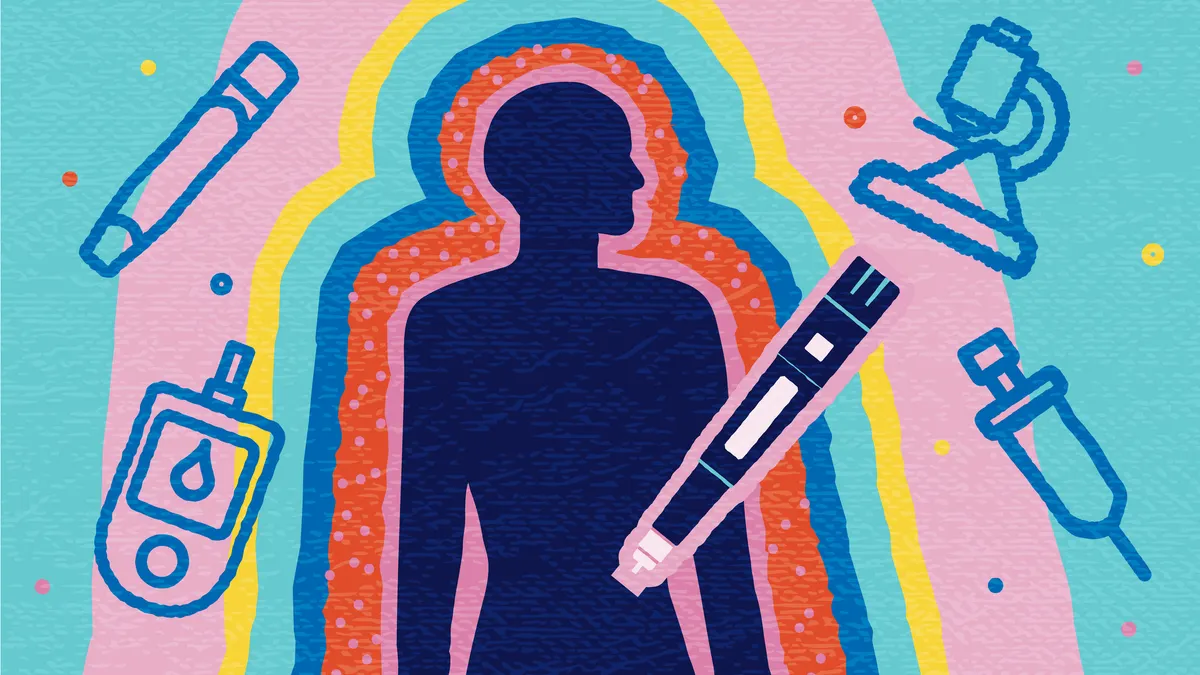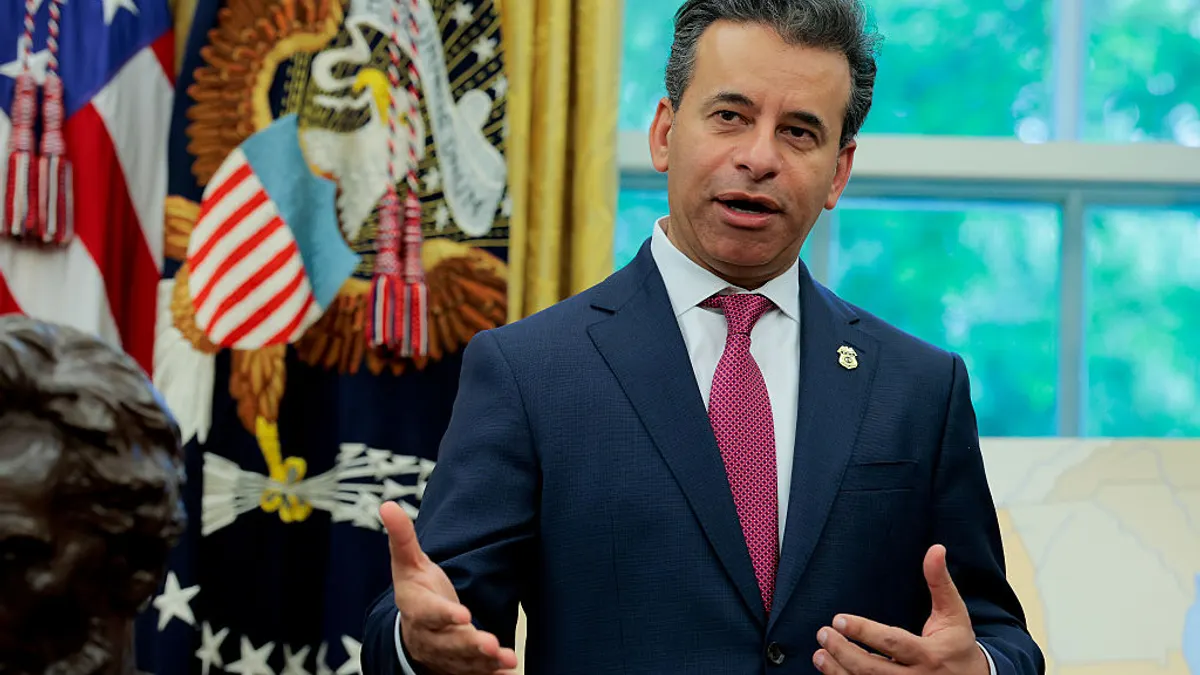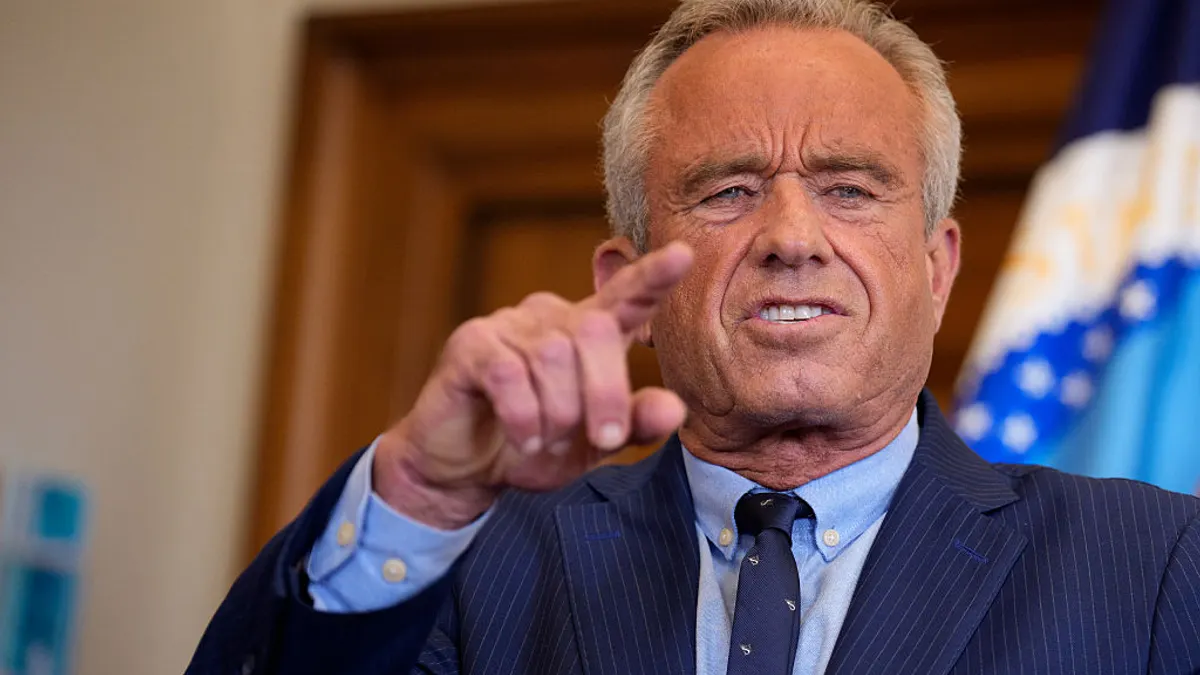As Vice President Kamala Harris and former President Donald Trump enter the home stretch of their campaigns, both candidates have been financially supported by an increasingly anxious pharma sector.
Big Pharma is big into lobbying, and drugmakers upped their efforts in 2024, with more spending compared to the previous year, Politico reported. And there are several key policy issues at stake, including Medicare’s price negotiation power.
Pharma has historically supported Republicans, although that favorability flipped in 2020, with Democrats receiving more support since then, according to public data retrieved from Open Secrets. And Harris has received significantly more contributions from the pharma manufacturing sector — nearly $1.7 million — compared to former president Donald Trump, who cashed in just over $300,000, the data showed.
It’s not uncommon for large companies and their leaders in many industries to contribute to both sides of the aisles, and this year’s election is no different, with pharma-related political action committees contributing to Democrats and Republicans in congressional races nearly evenly. Some executives have made individual contributions to their presidential campaign picks, but for the most part, Big Pharma CEOs have taken the PAC approach.
Here’s where campaign donations from some of pharma’s biggest companies are going.
Eli Lilly
In the first half of the year, Eli Lilly’s PAC — Lilly PAC — gave more than $180,000 to Republicans and Democrats in House and Senate races, as well as equal amounts to both parties’ congressional and senatorial committees. CEO David Ricks also donated the maximum individual contribution to a Republican Congressman Brett Guthrie from Kentucky, as well as two other PACs, including Carolina Victory Fund, which has given 100% of its funding to Democrats and has a large donor base made up of mostly Big Pharma CEOs.
Johnson & Johnson
J&J CEO Joaquin Duato hasn’t given any individual contributions to politicians this year, according to FEC records, but he has continually donated to the J&J PAC since 2023. The company PAC has given nearly $500,000 in 2023 and 2024 to Democrats and Republicans running for Congress, with the contributions leaning slightly more Republican. In October, J&J PAC contributed more than $26,000 to various candidates, according to the latest FEC records.
AbbVie
It’s a similar story at AbbVie, with CEO Robert Michael giving monthly to the company’s PAC, but no individual contributions. The PAC has hedged slightly Democrat in its contributions to congressional races, and like other Big Pharma companies, the PAC hasn’t given to either presidential candidate in the latest round of records.
Merck & Co.
Robert Davis, CEO of Merck, has donated to Merck PAC consistently for the past two years and contributed the maximum amount to a handful of Democratic and Republican congressional candidates and their affiliated PACs. Merck PAC has leaned more Republican in its 2024 contributions, however. In its October filing with the FEC, the PAC reported more than $300,000 in disbursements to House and Senate candidates and PACs, including the Senate Republican Campaign Committee.
Amgen
Amgen, one of the industry’s largest lobbyists, has contributed significantly more to Republicans in the latest election round, bucking the trend among other Big Pharmas to be more evenly distributed. Amgen PAC has spent 62% of its contributions on Republicans this year, according to public record.
Amgen CEO Robert Bradway has also given thousands to Republican congressional candidates in the last few months, and organizations that include the National Senate Republican Committee and two Republican-led PACs. However, he also contributed the maximum amount to a Democrat incumbent running for the House in North Carolina this year.
Pfizer
Pfizer PAC has also contributed significantly more to Republicans than Democrats — about 63% compared to 37% for Democrats. However, contributions from Pfizer employees and affiliates have strongly supported Democrats, with more than $200,000 going to Harris compared to less than $12,000 to Trump from individuals, public records show found. Contributions from Amgen’s employees and affiliates also heavily favored Harris — with more than $67,000 for Harris and just over $10,000 for Trump.
Outside the U.S.
The CEOs of the Big Pharma companies based outside the U.S. are not allowed to contribute to U.S. election candidates per federal law, but the drugmakers have still used PAC funds — funded by eligible U.S. employees — to build relationships with Democratic and Republican candidates, according to records.
Roche
Roche, based in Switzerland, has a much smaller PAC presence, by comparison. Roche Diagnostics PAC has contributed less than $100,000 total in 2023 and 2024, with a slight lean toward Republican candidates.
Novartis
Novartis, also based in Switzerland, has a PAC that has contributed more to Democrats over the last 10 years, though its 2024 contributions have geared slightly more to Republicans.
Novo Nordisk
Denmark-based Novo Nordisk’s PAC has given more than $300,000 in the 2023-2024 election cycle, with 49% of funds going to Democrats and 51% toward Republicans.
AstraZeneca
U.K.’s AstraZeneca also has a PAC that slightly favored Republicans in this election, though the amount it contributed to the party has declined for the last several years, with 2024 being the lowest level of contribution in 20 years, according to public record.





















